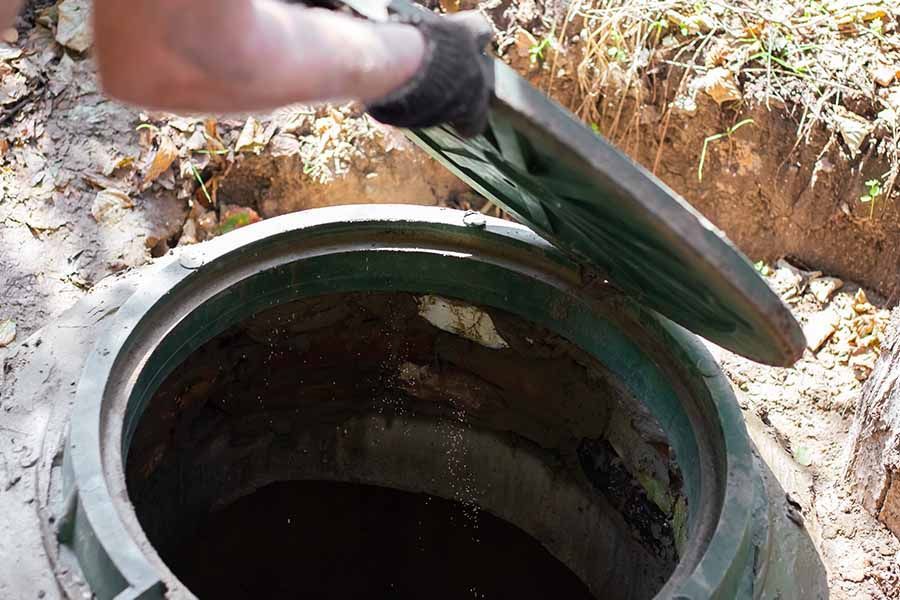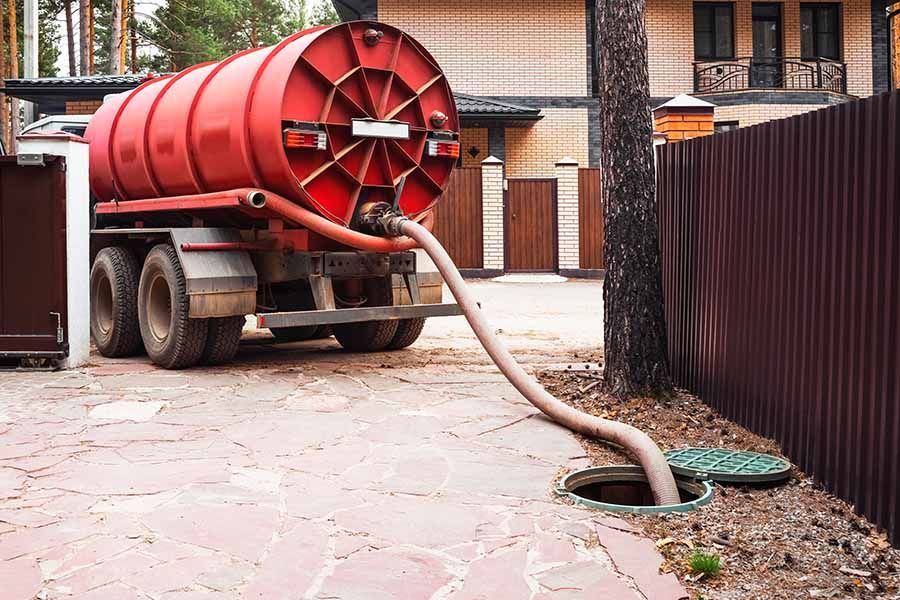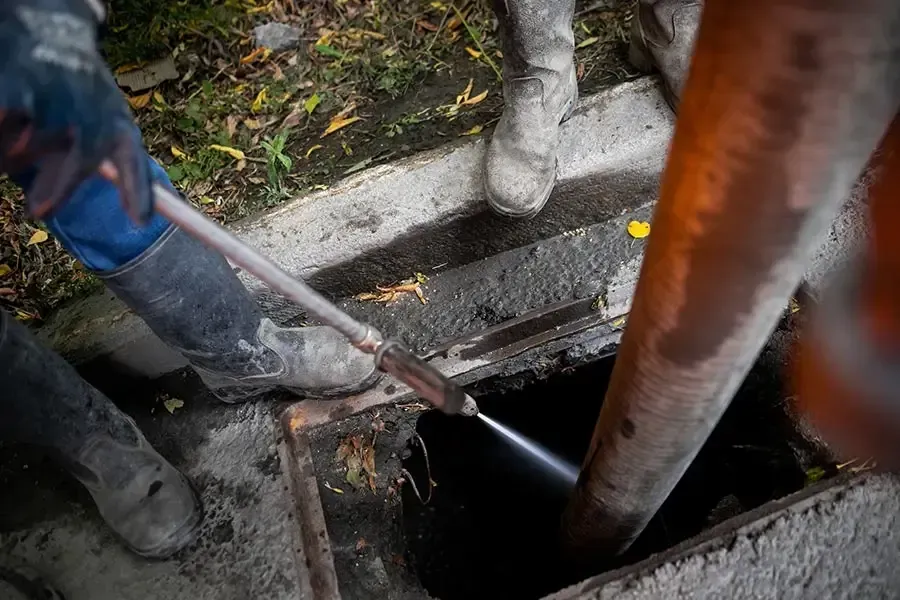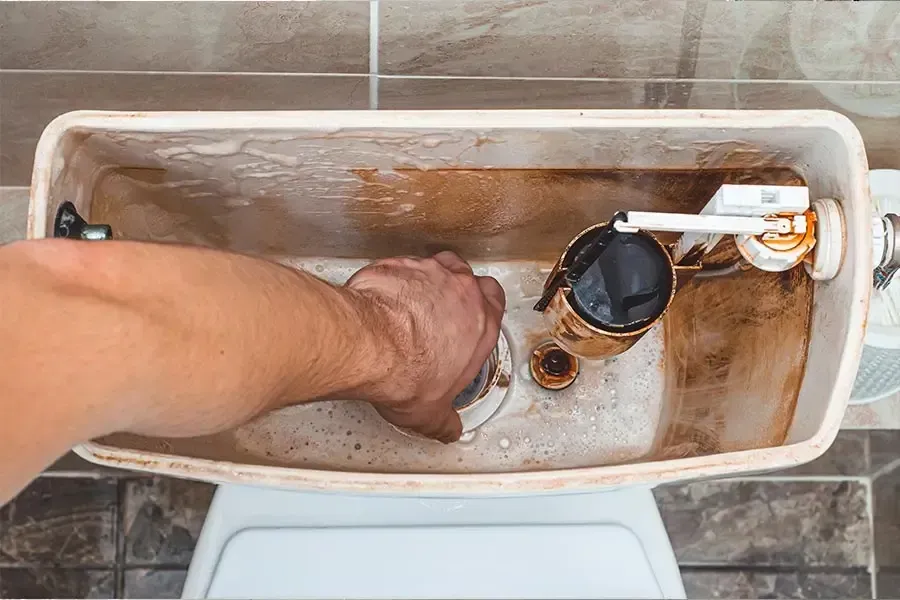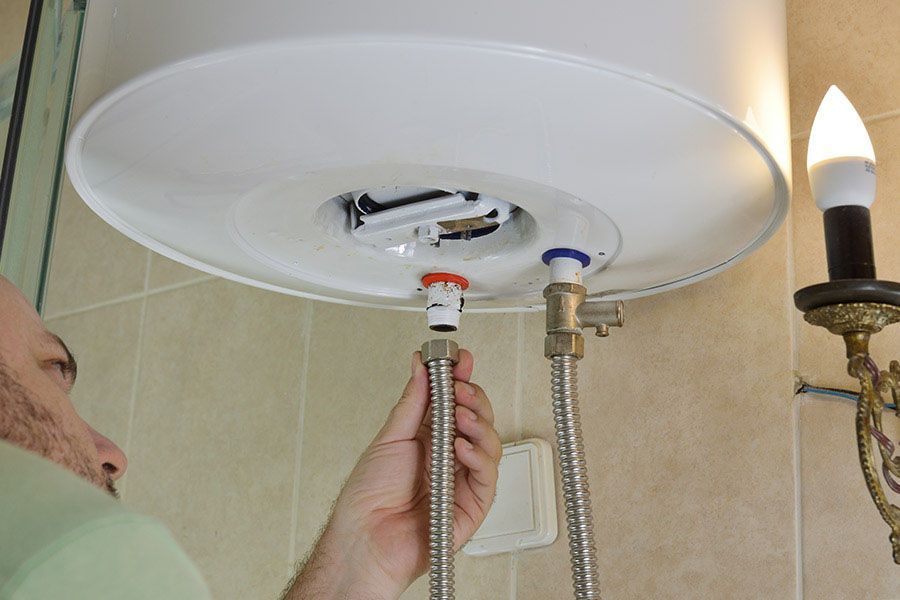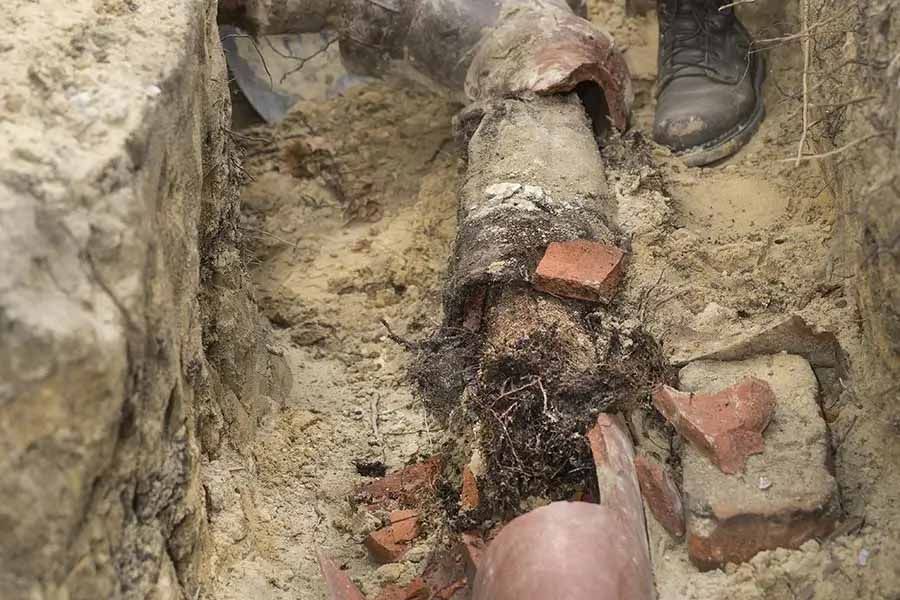Most homeowners know that winter brings the danger of freezing pipes, but how many know the signs that freezing temperatures are damaging their pipes? Many of the signs are subtle, and overlooking them could lead to costly consequences. Do you know what happens when house pipes freeze?
If you experience signs of water damage and you live in the Winnipeg area, turn to King’s Services, Winnipeg's reliable emergency plumber, for prompt, efficient repair and replacement of damaged pipes and restoration of water flow.
The Effect of Freezing Temperatures
Water freezes at 32 degrees Fahrenheit or 0 degrees Celsius. Water in your pipes will not freeze instantly when air temperatures hit freezing, but if they remain below freezing for several hours, ice will form inside the pipes.
If your pipes are full of water, the water will slowly turn to ice. Ice is less dense than liquid water, so the ice exerts outward pressure on the pipes. At the same time, the cold causes the pipes to crack. Later, if the ice melts, the water exerts pressure as it flows around the remaining ice.
Even if you are diligent about keeping ice from forming in your pipes, the temperature change itself causes damage. As pipes contract in the cold and expand in the heat, the change exerts stress on the metal and can cause the pipes to change position, leak, or crack.
Signs of Damage to Pipes
Knowing what happens when house pipes freeze is the first step in detecting pipe problems before they cause your plumbing system to fail. If your pipes are frozen, act quickly but carefully to thaw them to reduce the chance of further damage. King’s Services will check for these signs and repair any pipe damage so that you are ready for the frigid Manitoba winter.
Bulging Pipes
Pipes don’t always burst all at once. In response to the pressure from ice or water, they might bulge at weak points, and a bulging pipe is at risk for breaking. Replace the bulging section of pipes as soon as possible to avoid water damage.
Bursting Pipes
If a pipe cannot withstand the forces placed on it, it can burst, causing water and ice to fall from the pipe and possibly damage whatever is beneath them. If burst pipes are in an upper story, they can damage the ceiling below and cause extensive property damage in the floor below.
Leaks
Even if a pipe does not burst, it can become loose at a junction or weak point and allow water to drip. This is particularly true if pipes are already weakened by rust or corrosion. Leaks from damaged pipes can create damp conditions that promote rot and mold growth. Keep in mind signs of a leak, such as stained drywall, could be some distance away from the section of pipe that is the source of the leak.
Sounds
As temperature changes and ice obstructs water flow, you might hear gurgling or whistling sounds. Burst pipes will create a loud pop, and leaking water might produce audible dripping sounds. Copper pipes often make a creaking sound when they expand.
Loss of Water Pressure
If ice or other obstructions block the pipes that carry water to your home, you might get only a trickle of water or no water at all from faucets, showers, and toilet tanks. If you have water flow to some parts of the house but not others, this could help your plumber identify the location of the blockage.
Backup of Water
A blockage in drainage lines can cause water to back up through drains or toilets. If the sewer lines are clogged, you might face a backup of sewage into your home, requiring a more costly remediation process.
Tips for Preventing Frozen Pipes
The best way to prevent what happens when house pipes freeze is to prevent them from freezing in the first place. Take steps to keep pipes warm inside and out to reduce the risk of damage.
- Install pipe insulation to keep pipes from losing heat
- Set the thermostat to a temperature no lower than twenty degrees Celsius
- Winterize your home to insulate interior pipes from the cold
- Open cabinet doors when you’re not using them since the air in the cabinet helps to insulate the pipes
- Leave the water running in a trickle to prevent water from standing in the pipes long enough to freeze
- Avoid leaving the garage door open if there are pipes inside
If you store valuable items in your basement, crawl space, or garage in the vicinity of pipes, keep them in watertight storage containers to prevent damage.
Tips for Thawing Frozen Pipes
If your pipes freeze, you might be tempted to thaw the ice as quickly as possible to protect them from damage. However, take care during the thawing process to prevent the heat or pressure from melting water from causing further damage to pipes.
- Run warm water to melt any ice plugs that might be blocking water flow
- Do not use an open flame to thaw frozen pipes to avoid damaging them
- Do not use any heat source that produces fumes, such as charcoal, in an unventilated indoor space
- Use a portable heater or an electric hair dryer to gently warm the outside of the pipes
An experienced plumbing contractor might use additional tools to fix frozen pipes, such as inspecting the interior of pipes with a camera to identify obstructions.
Fix Damaged Pipes with King’s Services in Winnipeg
At King’s Services, we want our neighbors in Winnipeg to know what happens when house pipes freeze and how to handle other common plumbing problems. Read about septic system malfunctions, portable sanitation, plumbing problems, and our full range of services on our website.
To schedule a service call or ask for emergency service, call us at 204-815-5879 any time day or night.




